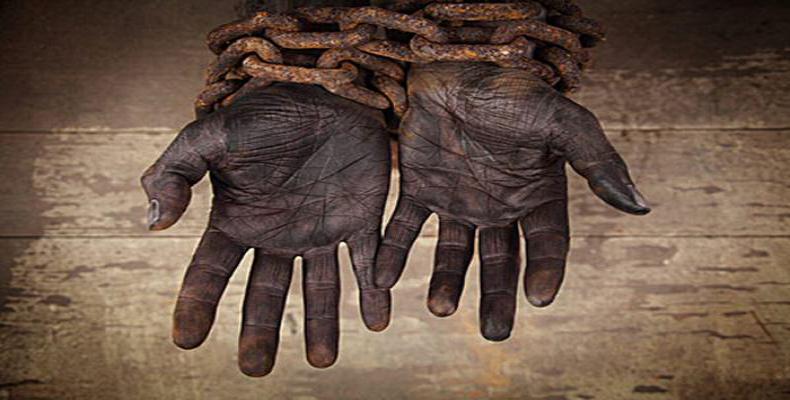Geneva, August 9 (RHC)-- Africa has the highest prevalence of slavery, with more than seven victims for every 1,000 people. More than 40.3 million people worldwide are living in modern forms of slavery such as bonded labor, child labor, human trafficking and forced begging,
According to a research carried out by the Walk Free Foundation (WFF) and the International Labor Organization (ILO). The WFF-ILO report defines contemporary slavery as having to do with "situations of exploitation that a person cannot refuse or leave because of threats, violence, coercion, deception, and/or abuse of power."
These extreme models of worker exploitation have resulted in a multi-million dollar business which traffics people across the world to favor the accumulation of capital in fields such as agriculture, domestic labor, construction, and sex work.
Nowadays, Africa -- a continent still plagued by endless interstate wars and civil wars -- has the highest prevalence of modern-day slavery, with more than seven victims for every 1,000 people.
Blessing, a Nigerian 11-year old girl, is one of the victims of this modern-day scourge. She was rescued by the Women Trafficking and Child Labour Eradication Foundation (WOTCLEF) in 2016, after two years of being exploited as an unpaid housemaid for a family which used to beat her with an electrical wire if she forgot one of her chores.
"They would tell me that my mother was coming, that I should not tell her what was happening to me, that I should not even say anything," she said.
In Asia victims of modern-day slavery are largely from China, Vietnam, India and Malaysia. These abusive labor practices, however, can also be found in the so-called developed countries.
According to the WFF's Global Slavery Index, for instance, there are about 15,000 victims of modern slavery in Australia, a country that launched a 10-year counter-trafficking initiative which involves other Southeast Asian nations and seeks to help businesses root out slavery in their supply chains.
“It will find new ways to engage with the private sector and help relevant Asean governments engage with their private sectors to… address the supply chain aspects of the battle against slavery,” Bryce Hutchesson, Australia’s ambassador for people smuggling and human trafficking, said of his country's initiative.
In 2018, the Australian parliament approved the "Modern Slavery Act," a policy which requires big corporations working in the country to make annual reports in order to tackle slavery risks within their operations. "The legislation is a first for the Asia-Pacific region, and only the second of its kind in the world," Minderoo Foundation, an Australian NGO, recalled.


